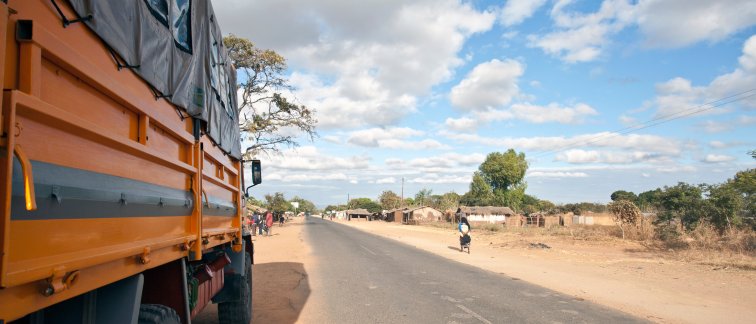Nearly half of the world's population are at risk of malaria and the hunt for a vaccine continues. But, in the view of Martin Grobusch, Professor of Tropical Medicine and Travel Medicine at Amsterdam UMC, it's not the magic bullet of a vaccine that we should be waiting for but rather getting to work on a magic gun, filled with all the options that we already have.
Earlier this month, Ghana became the first country to approve Oxford University's new malaria vaccine, R21. For Grobusch, "a jet aircraft” that makes the current RTS,S malaria vaccine look like "something from the Wright brothers.”
Nevertheless, on the 16th World Malaria Day, the landscape hasn't drastically changed. Malaria remains a parasite with a complex life cycle. One that constantly develops and, crucially, one that a previous infection only provides limited immune protections from.
"It would be hubris to imagine that we can do better than nature. And by that, I mean that nature has determined that we don't develop fully protective immunity after a malaria infection. That means that while R21 is the best malaria vaccine we have, it is far from being perfection, Grobusch says.”
Holistic Approach
Without a perfect vaccine, eradicating malaria requires a more holistic approach, more in the style of Grobusch's magic gun than the magic bullet of a vaccine. And not just on the individual level with mosquito nets and repellent but also by making changes on a societal level.

“As soon as we enhance general conditions of living, malaria will be pushed back. It's not a disease of pure hygiene and the link is less evident. But if everybody can afford to see their doctor in timely fashion, if everybody lives in areas where the roads allow them to reach a hospital in time when their child is critically ill; this combined with improved nutrition and reduced burden of worm infections in children which cause chronic anaemia, aggravating each new malaria episode, would allow us to eliminate many indirect deaths,” says Grobusch.
Unfortunately, the role of societal intervention creates a paradox at the centre of the fight against malaria. In Grobusch's experience success, and the subsequent decline in cases, often leads to politicians being distracted by problems that then appear larger than malaria, which, in turn, allows malaria to increase. "We saw in Zanzibar, for example, that malaria was almost reduced to zero, before money was spent elsewhere and then it resurged to the level than we saw cases again,” recalls Grobusch.
Quantum Leap
Cases of Malaria are certainly not hard to find, the World Health Organisation's 2022 World Malaria Report estimated that there were 247 million cases in 2021. Nevertheless, finding a vaccine that would offer total protection against all the different malaria parasites that cause disease, across all the countries where malaria is encountered is something that Grobusch believes would require a "quantum leap” in immunology.
Rather, Grobusch is convinced that we should ensure that governments, funding agencies and the scientific community continue with a holistic approach. Something which has already born fruit in Southeast Asia, resulting in a fivefold decrease in cases, from 16/1000 to 3/1000, between 2010 and 2020.
"While Africa isn't Southeast Asia, and even the parasite itself is different, it can still show us the way forward. If we can reduce the levels in Africa to the levels there, it will make a massive difference,” says Grobusch.
However, a massive difference is not quite eradication, something which the WHO called for the first time almost 70 years ago and a goal envisaged by many anew around a decade ago. Amsterdam UMC contributes to this goal through drug and vaccine development, as well as striving for optimising malaria prevention in travellers (and treating it in those who return ill with malaria), but Grobusch remains sceptical If we'll ever get to zero malaria.
"The question remains, will we ever eradicate malaria? I think it would be naive if we thought we could do it entirely, but we have to aspire to the highest goals in order make the humbler achievements on the way."
Get to know Prof. Martin Grobusch even better by reading our previously published articles:
Malaria vaccine development breakthroughs from 2022 (January 2023)
Ethical dilemmas surrounding testing of experimental Ebola vaccine in Uganda (November 2022)
Deadly Marbrug virus surfaced in Ghana (August 2022)

